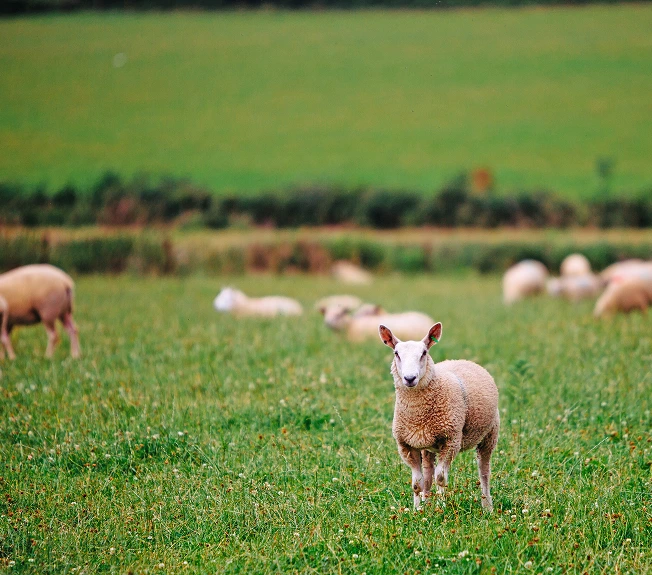Animal Welfare In Organic Farming
Animal welfare is a cornerstone of organic farming, ensuring that animals are raised in conditions that respect their natural behaviors and health needs.
High Standards of
Animal Welfare in
Organic Farming
Organic animals are fed a natural, organic diet free from genetically modified ingredients.
Animals are provided with adequate light, space, and comfort to move freely and express their natural behaviours.
Organic animals have ample access to fresh air and space to graze and roam, satisfying their natural instincts.
Animals must have access to pasture whenever weather and ground conditions permit, supporting their well-being and natural behaviours such as grazing, rooting, dust-bathing, and perching.
Organic farmers reduce stress and disease in animals by giving them plenty of space and allowing them to behave naturally in a suitable environment, meaning there is no need for preventative antibiotics.
Routine use of antibiotics is banned. Animals receive medicine only when needed, minimising stress and preventing antimicrobial resistance.
Key principles of animal welfare
- Knowledgeable personnel: Staff must understand animal health and welfare needs.
- Prohibition of tethering: Except for short periods for welfare, safety, or veterinary reasons.
- No hormones: Hormones and similar substances are not permitted unless needed for veterinary reasons.

Organic livestock farming emphasises high welfare standards
- Preventive health measures: Using appropriate breeds, feeds, and husbandry techniques.
- Loose housing systems: Free-range conditions and land-based production.
- High welfare standards: Consumer motivation for buying organic often includes perceived animal welfare benefits.

Find out more about:

Why Organics?

Certified Organic

Fundamentals